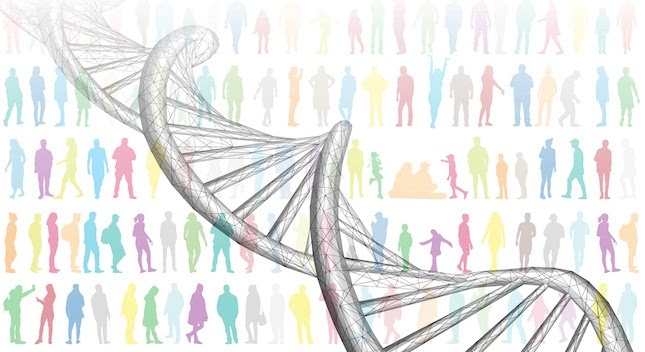Recent research reveals how genetic variations associated with severe cases of COVID-19 impact the immune cells.

Genetic differences leave immune cells at a disadvantage. Image Credit: La Jolla Institute for Immunology.
The research directed by researchers from the La Jolla Institute for Immunology (LJI), is the first of its kind to make an in-depth analysis of the association between COVID-19 severity and gene expression in different types of immune cells. This research can guide the generation of novel COVID-19 therapies to enhance immune cell function.
The scientists among their observations report that a gene in a cell type named non-classical monocytes—part of the body’s “first responder” group of innate immune cells—can be a potential target for COVID-19 therapies.
This study highlights the power of human genetics to uncover novel pathways linked to disease.”
Pandurangan Vijayanand MD, PhD, Study Senior Author and Professor, La Jolla Institute for Immunology
The research was published in the Nature Communications journal.
The scientific community has recognized numerous genetic variations known as polymorphisms—which they designate “severe COVID-19-risk variants.” These genetic variants are linked with gene expression and seem to influence case severity. However, researchers could not identify the immune cells affected by these risk variants.
For the current research, Vijayanand and his coworkers put together patient genetic data from LJI’s open-access Database of Immune Cell Epigenomes (DICE) and the COVID-19 Host Genetic Initiative to determine the genes and susceptible cell types impacted by these risk variants. The researchers analyzed 13 subtypes of the body’s major protective and virus-attacking cells—B cells, T cells, NK cells, and monocytes.
There are many different immune cell types, and they all contribute small functions to the global picture. We have to look at every immune cell type separately to figure out how the immune system is able to respond to COVID.”
Benjamin Schmiedel PhD, Study First Author and Instructor, La Jolla Institute for Immunology
The scientists discovered various significant associations of genetic variants with genes. There was a risk variant among them that affected 12 of the 13 cell types analyzed. This severe COVID-19-risk variant in chromosome 21 was linked to decreased expression of a receptor on the cells known as IFNAR2.
This receptor belongs to the signaling pathway that signals the immune system to infection. This new association might help detail why certain individuals could not mount a strong immune response to SARS-CoV-2.
Simultaneously, a risk variant on chromosome 12 showed the highest effect in non-classical monocytes—a kind of innate immune cell that guards the body and sends signaling molecules to warn other immune cells to threats.
The risk variant led non-classical monocytes to decrease the expression of a gene named OAS1. The absence of OAS1 expression can hobble the body’s defenses by decreasing the expression of a family of proteins that generally degrades viral RNA and triggers the antiviral response of the immune system.
Non-classical monocytes are a rare, understudied cell type. They only make up about two percent of immune cells.”
Benjamin Schmiedel PhD, Study First Author and Instructor, La Jolla Institute for Immunology
Schmiedel intends to perform further pre-clinical evaluations to analyze the role of these genes in COVID-19 pathogenesis.
Schmiedel remarks, “That we can identify these kinds of genetic mechanisms is a big step forward. We can use the information out there, combine it with our data on immune cells, and find potential targets for therapy.”
Source:
Journal reference:
Schmiedel, B. J., et al. (2021) COVID-19 genetic risk variants are associated with expression of multiple genes in diverse immune cell types. Nature Communications. doi.org/10.1038/s41467-021-26888-3.